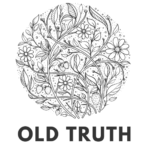In the U.S., choosing an insurance policy is a complicated process. With dozens of options available to choose from and an overwhelming amount of information to sift through, picking the best option can feel almost impossible. At the end of the day, your “ideal” plan will cover the type of health needs you’re concerned about; this can vary from prescription coverage to cancer treatment coverage.
Many Americans are interested in insurance plans that cover residential treatment (commonly known as rehabilitation) regarding chemical dependency due to the fact that an estimated 21 million U.S. citizens have at least one addiction. Tragically, only 10% of these people seek help for their addictions, and insurance coverage may be why.
Finding help with a substance addiction is not as easy as typing “residential programs for troubled youth near me” into a search engine—you need to have the funds to support these often expensive programs, and many insurance plans either don’t offer coverage or they include high premiums and copays. Let’s break down what you might expect to see from your insurance provider when looking up details surrounding this important service.
At A Glance
Insurance providers vary from state to state, although a few are nationwide. Some of the more common names you may see are Blue Cross variations (i.e., Anthem BlueCross, Excellus, BlueCross BlueShield, etc.), Molina Healthcare, Health Net, and Fidelis. When researching potential (or accessing current) residential treatment benefits, you may see something like the following:
- Inpatient Substance Use Detoxification:
- In-Network: $100 copay
- Out of Network: 20% coinsurance, subject to deductible $750 individual/$2250 family
- Inpatient Substance Use Rehabilitation Facility:
- In-Network: $100 copay
- Out of Network: 20% coinsurance, subject to deductible $750 individual/$2250 family
- Residential Treatment: NOTE: Facility services must be rendered in a facility providing an intensive level of care and certified by the Office of Alcoholism and Substance Abuse Services (in your state). If out of your state must be similar accreditation or Joint Commission on Accreditation of Healthcare Organizations (JCAHO) accredited facility providing an intensive level of care.
- In-Network: $100 copay
- Out of Network: 20% coinsurance, subject to deductible $750 individual/$2250 family
As you can see, where you live matters just as much as the type of insurance you’re covered by. If you’re interested in finding “residential programs for troubled youth near me,” you’re going to have to do extensive research ahead of time. This involves either contacting multiple insurance agencies and asking questions regarding substance abuse treatment or reaching out to the facilities offering the treatment themselves. Both will be able to give you all the information you’ll need, including associated costs and additional fees.
The Takeaway
Insurance programs may not be the easiest things to navigate in the U.S., but they’re not entirely unmanageable either. If you or your loved one is struggling with addiction, be it to alcohol or other substances, there is always help available. The Substance Abuse and Mental Health Services Administration (SAMHSA) can get you started off on the right foot; their national helpline—1-800-662-HELP (4357)—will not only ensure you get the attention you need but will guide you along the insurance path and help you find a residential program that’s right for you.
It’s important to remember that your health (or the health of your loved ones) always comes first. There are a variety of programs and rehab facilities willing to work with tight budgets and difficult cases to make sure you’re the healthiest you that you can be. It might seem overwhelming at first, but all the information is out there; you simply need to do a little digging or find someone to help you do a little digging.

